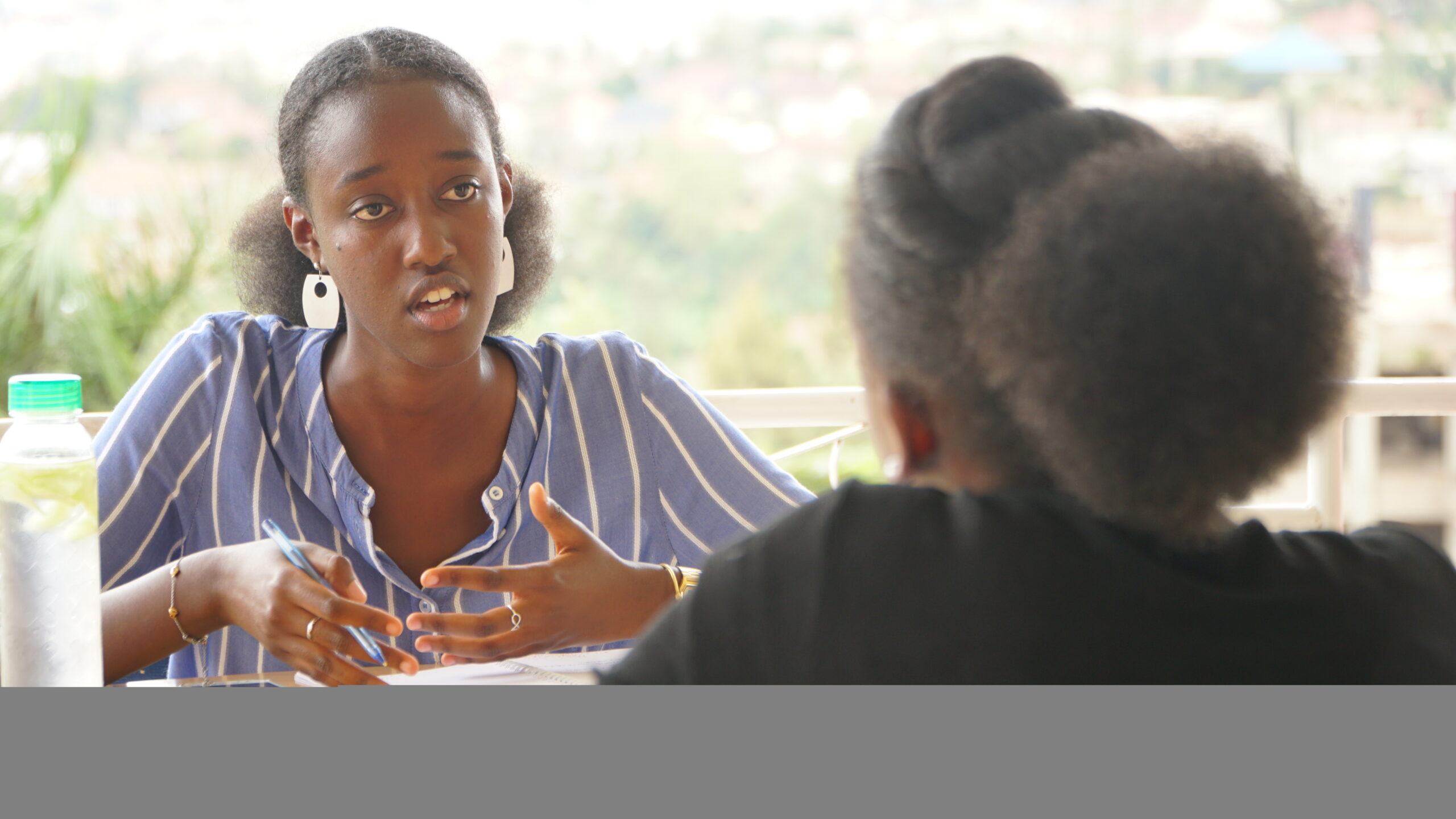Tell us about CPSAR and what you do to sensitize mental health among the young people
CPSAR is all about raising mental health awareness. In our society, mental health still suffers high stigma and people do not easily open up about it. Thus, one of our goals is to tell people that it’s okay not to be okay and that seeking help or asking for help is one of the first steps to healing if one is not doing well mentally. Some people confuse mental distress with severe psychiatric cases, where “mad people” throw stones and walk naked on the streets. Although mental health issues can be seemingly simple cases, like anxiety, extreme or outrageous behavior or even lack of sleep, they can be very detrimental to one’s life. So, we encourage people to talk about their emotional distress and we empower many to join our field because our country is unique – a post-conflict nation, which poses high risks of mental disorders. In Rwanda, the level of PTSD is currently at 26.1% and statistics show that the young generation is very exposed to mental disorders. This is what prompts our call to more people to join our field so that we can join efforts and foster a healthy and mentally fit nation.
What inspired you to work in mental health care?
There are three main things which inspired me to join the mental health field, the first is my brother. I have a big brother who was born with Down Syndrome (Trisomie Ventalle); it’s a congenital mental disorder. Since we tend to get to know things later in life (when we grow up), I looked at how he grew up, he was well cared for at home but he wasn’t able to get the best education because of the limited resources available. As I looked at him, I felt determined to join clinical psychology so that I can work with kids with special needs, so that I may have a chance to attend them. Secondly, young people are seen as incapable, though if they are well cared for, they have the potential to make pivotal contributions to their country. The third reason is the 1994 Genocide against the Tutsi that left the social fabric broken. Although most people were and still are affected, if we nurture the young generation today, we can rebuild that fabric, for other generations to enjoy.
Is there anything you have noticed so far about young people and their general knowledge of mental health Issues?
Today, most of the young people living with mental distress, but they don’t know it, but when you tell them about it, they tend to notice its importance. One day, before the celebrations of the International Day of Peace, I met a young man here at NAR, and he asked me about what I study, and I told him that I am in clinical psychology, he was too curious to know what we do, a topic that I often love to talk about. After our conversation, he was surprised to know that depression is also a problem in Rwanda because he used to think that it is not real.
Are there any specific approaches you have been using to educate the young people about mental health?
The approaches we use include; giving positive messages in school reach outs, and educating people (small focus groups) on the importance of taking care of their mental health explain that without it, whatever they are doing would be in vain, they get to know that if they want to live well, they have to be responsible for taking care of their mental health. Like resting is important after a long study period, as without resting at the end of the day what one studied would go to waste.
How have you seen awareness about mental health amongst youth development over the years?
The awareness of mental health is really progressing, most especially now that we are getting the support from government which is a very important thing because without the support of leaders we can’t progress.
Where do you see the link between mental health and peacebuilding?
Most of the time, when a child gets a crisis at school or in the community, it gives you an image of what is happening at home. Our parents are our models, they nurture us and they teach us how to maintain social relations. So based on our history, they are instances when some children are warned by their parents not to talk to some people, or not to go to a neighbor’s home, instilling a sense of fear that she/he could be poisoned. Such a child will have anxiety issue and prejudices, which can affect the peacebuilding efforts because she/he will not be able to live in harmony with the family that he/she was warned against. This is why critical thinking skills are important among young people, it provides an opportunity to question certain statements and are not easily manipulated into any violence.
How have you been able to involve girls in your work in mental health?
The first launch of our work was in a girls’ school and they are super motivated to know about mental health care. We often ensure that among girls are on the team of volunteers when we do community outreach. Also, as the president, I am a lady, which alone is a strong motivation for many girls.
What plans do you have in the future for continuing to push the conversation and educating young people about mental health?
Our future plans range from different things like; opening up more clubs in high schools and raising the conversation in community meetings because I realized that the way forward is to engage focus group discussions so as to spread the message among different people hence raise the awareness of mental health to a bigger audience.


